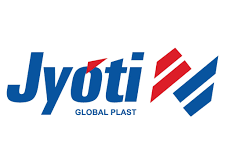Ashish Munjal – Co-Founder and CEO, Sunstone
For many generations, Indian students have chased a common dream to earn a degree in a popular domain from the country’s most prestigious college/university and set the stage for a promising career. However, this constant chase for top grades and highly sought-after degrees has unintentionally prevented institutions from offering industry-focused education to students. Certainly, India’s higher education system can significantly contribute to providing the nation’s expanding workforce with essential skills, giving a fillip to research and innovation, and creating professionals with practical knowledge.
What raised red flags about the efficacy of the higher education system in India was the 2024 India Skills Report, where only 51.25% of the Indian youth were regarded as employable. This misalignment between education and the demands of the job market has left a substantial portion of Indian graduates ill-prepared to secure their dream jobs. Recognising the gravity of this situation, industry leaders have already begun to adapt and take proactive steps to bridge the employability gap in the country.
Bridging the skills gap in the country: The way forward
The demand for industry-relevant skills is evolving fast. Educational institutions, taking note of this trend, are ensuring their students do not just earn a degree but also improve their behavioural skills. Increasingly, many institutions are collaborating with key industries and sectors, ensuring their students understand the market trends, upskilling them with meaningful and interactive sessions, and providing practical hands-on experiences.
Some industry leaders are championing the shift towards skill-based education with fresh teaching methods and interdisciplinary practices that encourage the practical application of knowledge while advocating for education programs that align with the dynamic needs of various sectors.
Skill development courses are becoming increasingly popular in higher education, equipping students with job-ready skills and potentially reducing the unemployment rates, ultimately boosting the nation’s economic growth. Here’s an interesting insight – in a recent article on manufacturing recruitment, companies such as Tata Steel, Maruti Suzuki, and JSW Group to name a few, boosted their entry-level talent pool with a focus on ‘young tech-savvy talent who have a strong understanding of new-age consumers.’ These companies have increased their hiring by 15-30% from the Class of 2024.
One of the most recent and innovative approaches involves fostering closer and deeper ties between higher education institutions and industry networks. This entails collaborative actions such as co-learning tracks, joint workshops, internships, and industry-academia partnerships. By engaging in these initiatives, students are exposed to the evolving professional landscape through real-world applications of their academic knowledge. It’s a win-win strategy, ensuring reduced time and cost for businesses in skill development.
Implications of the recent changes in Indian higher education and the NEP policy
The National Education Policy (NEP), launched in 2020, is not just a government initiative. The NEP 2020 represents a key reform aimed at addressing historical challenges, positioning the nation as a global knowledge superpower, and shaping the future of Indian higher education.
Many schools and higher education institutions have gotten on board with NEP and are focussed on making higher education more accessible and improving the quality of education, the government has kept this policy dynamic, reflecting the urgency and relevancy.
One of the key implications of the recent changes is increased flexibility and choice for students. They will now have the freedom to choose their academic paths with options for multiple entry and exit points, interdisciplinary studies, and dual degrees. This flexibility will allow students to tailor their education to their individual interests and career aspirations. Additionally, the NEP emphasizes holistic learning and skill development, shifting the focus from rote memorization to a more comprehensive approach that emphasizes critical thinking, problem-solving, and skill development. This will help students prepare for the demands of the increasingly complex and competitive job market.
According to the Ministry of Education, India’s Gross Enrolment Ratio (GER) in higher education has increased from 26.3% in 2018 to 27.1% in 2022. The NEP aims to increase the GER to 50% by 2035, adding 3.5 crore new seats. This expansion in access to higher education will be crucial for meeting the demand for skilled professionals in India’s growing economy.
New Tech: Paving the way for personalised learning experiences
Knowledge is like the new gold, and technology is the magic wand. Emergence of Artificial Intelligence (AI) is a key driver, which has led to a revolution that is changing how we work and leading to creation of new opportunities. This means there is a bigger demand for advanced skills, and higher education in India needs to adapt accordingly. They are looking ahead, predicting what the job market needs, updating the curricula, and making sure students are tech-savvy.
Virtual Reality (VR) and Augmented Reality (AR) are being employed to create immersive educational experiences, allowing students a more immersive education experience. The metaverse, a virtual world for real-time interactions, complements AI to create personalised virtual learning environments for students. AI tools can be used to improve the quality and experience of education. However, on this digital front, there are still some infrastructural upgrades required to truly expand this in India.
As we look ahead to 2030, the Indian higher education system is undoubtedly on the right path, adapting to the digital age and embracing the opportunities that lie ahead. The system is evolving to meet the needs of the global economy by encouraging future-ready skills in students, creating engaging and updated curriculums, and enhancing digital proficiency. These initiatives not only promise to increase employability and income prospects but also aim to raise the living standards of the people in the country.
 Newspatrolling.com News cum Content Syndication Portal Online
Newspatrolling.com News cum Content Syndication Portal Online







